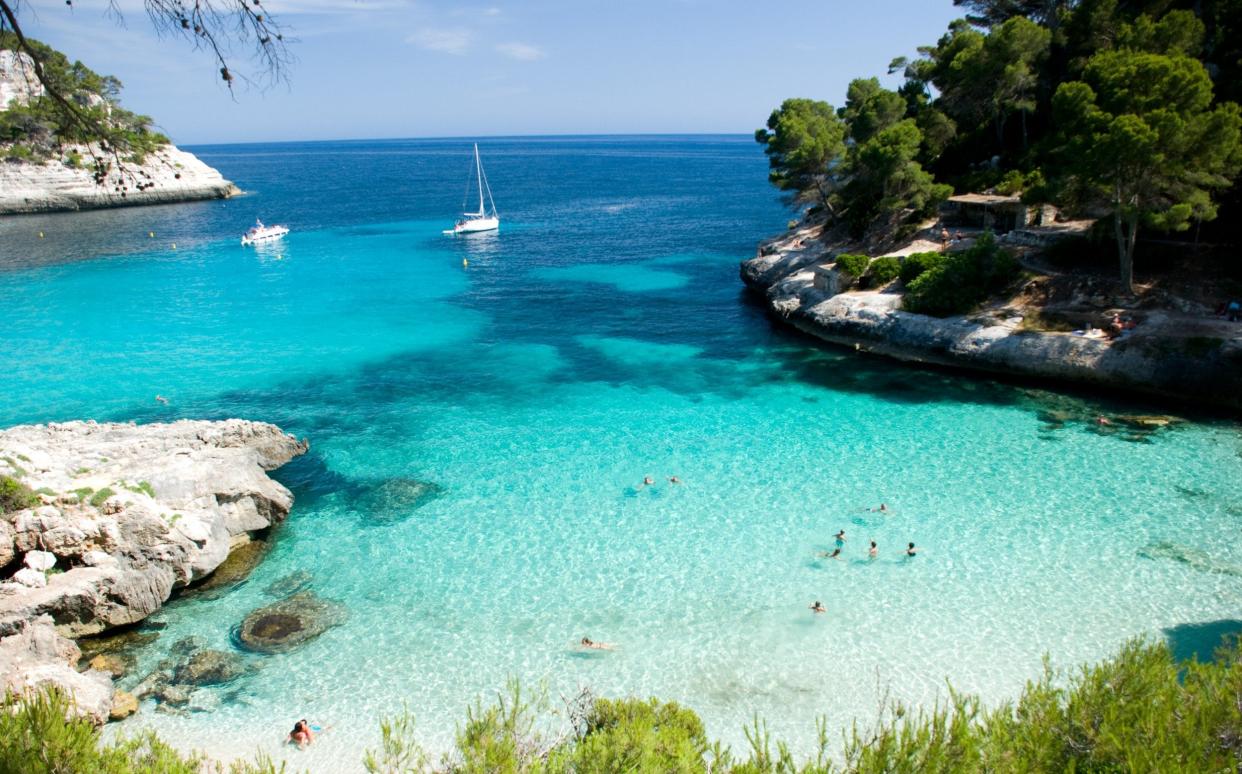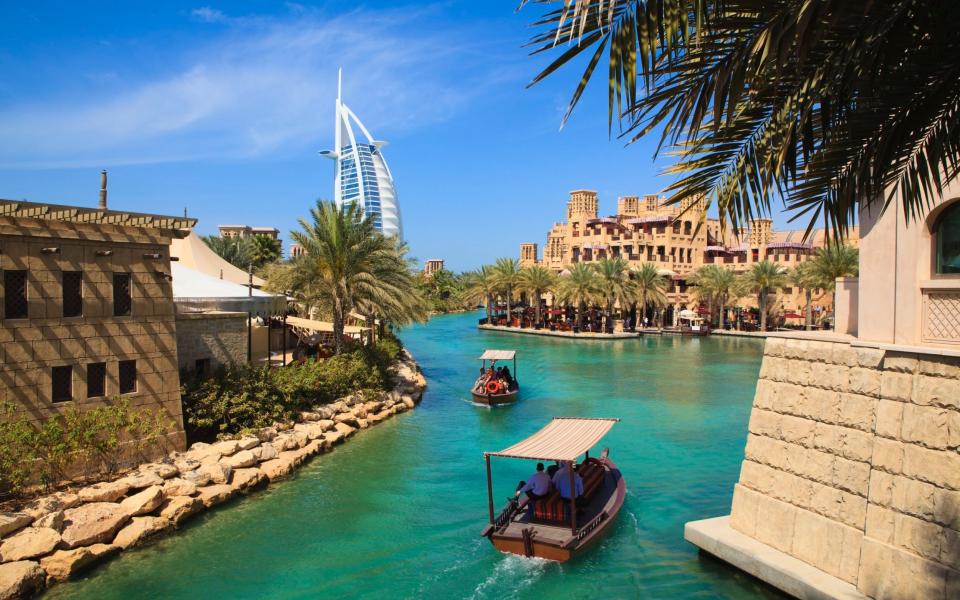Could Spain and Greece move to the 'amber plus' travel list this summer?

Just when we thought our holidays were opening up, British travellers have yet another curveball to consider.
July 19 was the long-awaited date, when double-vaccinated arrivals from amber list countries no longer need to quarantine. Anticipating this milestone, British holidaymakers have travelled in their droves to holiday favourites including Greece, France, Spain and Portugal.
They would not, they safely assumed, have to quarantine on return to the UK.
On Friday, however, the Government revealed all arrivals from France would still be required to enter a mandatory ten-day quarantine, creating what is effectively a new “amber plus” list.
Data analyst Tim White said there are a number of countries that could join the roster which has been dubbed the “amber plus” list.
“Luxembourg has a very high incidence of the Brazilian variant, so must surely be red – at least amber plus,” he said. “Belgium, Netherlands and Germany must be at risk too – low incidence of variants but could change.”
The view was echoed by Paul Charles, chief executive of travel consultancy The PC Agency. “France is one of the big three countries we visit each year and I think the concern is the Government will be looking at Spain and Greece and potentially add those to the amber plus category,” he told The i.
The flipside is that some red-listed countries could be upgraded to ‘amber plus’. Holiday favourites including Turkey, Dubai and Seychelles currently feature on the red list.
Here’s everything you need to know about the new ‘amber plus’ category, and which countries could have a quarantine imposed this summer.
What is the 'traffic light' system?
A country’s vaccination rates, infection rates, the prevalence of variants of concern and its genomic sequencing capacity – or access to genomic sequencing – help to inform its ranking in the traffic light system. All people travelling to England must complete a passenger locator form before departure. The lists will be reviewed regularly, with updates so far issued every three weeks.
The ratings work as follows:
Green countries: no quarantine, but a pre-departure test before returning to England and post-arrival PCR test. There is also a green watchlist. Destinations on this list are at risk of moving to amber.
Amber countries: pre-departure test before returning to England, two post-arrival tests and self-isolation for up to ten days on arrival back in England (with the option to use 'Test to Release', which cuts the time in self-isolation). From July 19, fully vaccinated arrivals will no longer have to quarantine on return from all amber destinations, except France. However, they must still take a pre-departure test before returning to England and pay for a PCR test on day two of their return as well as completing a passenger locator form.
Red countries: non-residents banned entirely, compulsory hotel quarantine (and testing) on return for returning residents (direct flights are banned from some red-listed destinations)
There now appears to be another category, dubbed “amber plus". Both vaccinated and unvaccinated Britons returning from these destinations (the category currently only includes France) will continue face self-isolation for up to 10 days and an additional PCR test after July 19. The rule change for France comes outside of the regular traffic light updates.

Could more countries join the ‘amber plus’ category?
Do not rule it out. France is the only country categorised as ‘amber plus’ right now, but with cases surging across the Continent it would not be at all surprising if we saw green or amber countries being demoted to ‘amber plus’ in the coming weeks.
The amber plus category, or ‘medium to high risk’ if you like, is a more viable alternative to a prohibitive hotel quarantine, which red-list arrivals must endure on return to the UK for the cost of £1,750.
It is not unfeasible that some popular red list countries, such as Turkey or the UAE, could be upgraded to the amber plus category in weeks to come.
When could countries move from amber to ‘amber plus’?
Until now, the traffic light updates have come every three weeks. However, France was added to the ‘amber plus’ list on Friday, two days after the Government announced the updates to the regular green, amber and red lists.
This indicates that Grant Shapps’s three-week update rota can be broken at any time, meaning double-jabbed holidaymakers in popular destinations cannot rule out the possibility that their destination could come with a last-minute imposition of quarantine on arrival home.
What does it mean for my insurance, if my destination goes ‘amber plus’
This all depends on what the FCDO says. For France, for example, the Foreign Office does not warn against travel to France, which means your travel insurance policy will remain valid if you do go. It is highly unlikely that your insurer will pay for any additional costs involved in your holiday.
Which red list countries could be upgraded to ‘amber plus’?
It is possible that some red list countries could move up the traffic light ranking, meaning a ten-day quarantine at home instead of a mandatory ten-day quarantine at a Government-approved hotel, costing £1,750.
Turkey
7-day case rate: 48 per 100,000
Second dose: 32.54%
Letting Britons in? Yes, with a negative PCR result taken 72 hours prior to arrival. More information here.
Turkey is the most popular holiday destination on our red list, and probably one of the most likely contenders for an amber (or amber plus) promotion in the coming weeks. The country has recorded 40,484 cases in the past seven days, amounting to 48 per 100,000. Amber-listed Portugal, by way of comparison, has 222 cases per 100,000. The second jab rate in Turkey is comparable to many countries on our amber list, and with 61.59% having received the first jab Turkey is showing promising progress with its vaccination campaign.
UAE
7-day case rate: 108.78 per 100,000
Second dose: 80.83%
Letting Britons in? Stringent entry restrictions apply. More information here.
The UAE’s case rate is high, although actually quite a bit lower than that of the UK, and it is just about steady week-on-week. The United Arab Emirates recorded 10,758 cases in the last seven days, but only 32 deaths. With a speedy vaccination drive – 80.83% have received two jabs, and 92.1% have had one – and strong business connections with the UK, don’t rule it out for an amber or ‘amber plus’ promotion in the coming updates.

Dominican Republic
7-day case rate: 35.9 per 100,000
Second dose: 47.56%
Letting Britons in? Yes, with full vaccination or PCR test taken 72 hours before travel. More information here.
The Caribbean country bordering Haiti has a decreasing case rate and a growing vaccination rate, making it a possibility for an amber promotion in the next update. There were 3,894 cases in the past seven days and 24 deaths in that period. With 68.74% having received one jab and 47.56% the second, the Dominican Republic is one of the Caribbean countries leading the way with its vaccination drive. Green-listed Barbados, by comparison, has only given a second dose of the vaccine to 30% of its population.
Which countries could be demoted to ‘amber plus’?
The Government will be reluctant to impose hotel quarantine on thousands of British holidaymakers this summer, yet cases are booming on the Continent, meaning it is likely we could see more popular spots added to the ‘amber plus’ list in the coming weeks and months.
Balearics
Cases per 100,000: 386
Second dose: 52.7%
The formerly green-listed, now amber-listed, Balearic Islands are at risk of being demoted to the ‘amber plus’ category due to the rising cases on the islands. According to the latest figures, there were 630 new positive cases reported on Sunday, with the bulk on Ibiza. The island with the highest average case rate is Menorca, which has more than 1,000 cases per 100,000 individuals.
Luxembourg
Cases per 100,000: 119.65
Second dose: 49.58%
Not exactly a holiday favourite, but according to industry analysts Luxembourg is at risk of being demoted to the ‘amber plus’ list due to rising cases of the gamma (Brazilian) variant of Covid-19. However, cases in Luxembourg are overall dropping (23.49% week on week) which would presumably be factored into the UK Government’s thinking.
Where else?
Other destinations that have been mooted as possible demotions to ‘amber plus’ include the Netherlands, Belgium and Germany due to rising case rates. The Netherlands has seen a 79% week-on-week spike of cases, amounting to 412.16 per 100,000. Belgium’s cases are up 35% since last week, while Germany’s are up 61.61%.
Holiday favourite Spain has seen a 57.79% increase in cases, with 348.69 per 100,000. While Greece has seen 44% rise in cases, reporting 177.52 cases per 100,000 in the last seven days.
The latest data suggests that Spain and Greece have a higher incidence of the beta variant than France.

